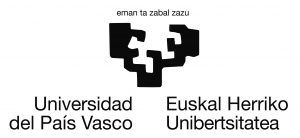Country
SpainHost institution

CIC nanoGUNE is a research center devoted to conducting world-class nanoscience research for a competitive growth of the Basque Country. NanoGUNE is a member of the Basque Research and Technology Alliance (BRTA) and is recognized by the Spanish Research Agency as a María de Maeztu Unit of Excellence.
The Nanodevices group, co-led by Prof. Luis E. Hueso and Prof. Fèlix Casanova, is currently composed of 26 members including senior and junior researchers. The group counts with extensive research facilities for fabrication and characterization of devices and several active research lines spanning from nanofabrication to 2D electronics and spin transport.
Supervisor
Prof. Fèlix Casanova.
Description
The magneto-electric spin-orbit (MESO) logic is a scalable and revolutionary alternative to CMOS proposed by Intel, with superior energy efficiency, high logic density, non-volatility and efficient interconnects [1]. It relies on phenomena that exploit spin-orbit coupling, such as the spin Hall effect and the Rashba-Edelstein effect, to generate large spin-to-charge current conversion.
The objective of this project is to explore novel materials beyond the conventional strong spin-orbit coupling heavy metals to maximize the output voltage using all-electrical local T-shaped devices, developed in our group as one of the MESO logic elements [2]. The successful candidate will explore graphene-based hybrid materials, while benchmarking them for future MESO devices. These heterostructures will combine the long spin diffusion length and large sheet resistance of graphene with another material that will induce spin-orbit coupling by proximity, such as semiconducting transition metal dichalcogenides [3], heavy metal oxides [4], or Weyl semimetals [5].
The research will require the exfoliation and stacking of 2D materials into van der Waals heterostructures, the nanofabrication of devices (thin film deposition, electron beam lithography, etching), and magnetotransport measurements (high magnetic fields and low temperatures).
[1] S. Manipatruni et al., Nature 565, 35 (2019)
[2] V. T. Pham et al., Nat. Electron. 3, 309 (2020)
[3] C.K. Safeer et al., Nano Lett. 19, 1074 (2019)
[4] C.K. Safeer et al., Nano Lett. 20, 4573 (2020)
[5] C.K. Safeer et al., Nano Lett. 19, 8758 (2019)
Requirements
- Master’s degree in Physics or a similar field
- Good verbal and written communication skills in English
Although not compulsory, the following points will be considered:
- Previous knowledge of spintronics
- Experience in the following techniques: thin film growth, nanofabrication, exfoliation of 2D materials, magnetotrasport
- Self-motivation and willingness to perform independent research
Planned Secondments
Martin Luther Universität (Halle, Germany), under the supervision of Ingrid Mertig.
Graphene Semiconductor (San Sebastian, Spain), under the supervision of Amaia Zurutuza.
Registering University
Universidad del País Vasco-Euskal Herriko Unibertsitatea (San Sebastián, Spain).




